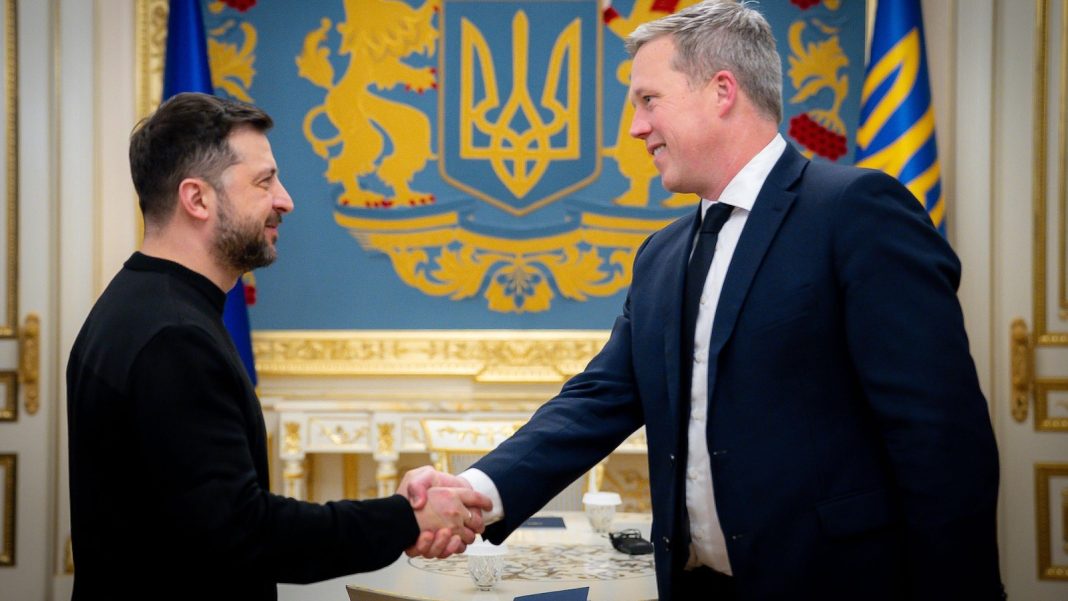A crisp autumn chill hung in the Canadian air, but inside the hallowed halls of a major security conference, the atmosphere was decidedly heated. The world’s security elite had gathered, and among them, a notable contingent of American senators arrived, not just to observe, but to deliver a resounding message. The subject? Former President Trump’s proposed Ukraine peace plan, a vision that, rather than uniting, appears to be drawing sharp, critical fire from within his own nation’s legislative body. It’s a debate that transcends mere partisan bickering, touching upon the very foundations of international law, alliance solidarity, and the long-term prospects for global stability.
The Weight of Washington’s Unease
The murmurs that began as quiet apprehension quickly escalated into a chorus of direct challenges. American senators, representing various political stripes, didn’t hold back their concerns regarding a plan that, to many, feels less like a pathway to enduring peace and more like a potential surrender to aggression. The core of their argument revolves around the dangerous precedent such a plan could set. Imagine, they posit, a world where territorial gains achieved through brute force are effectively legitimized. Such a scenario, many fear, would not only embolden future aggressors but also deeply undermine the global rules-based order that the U.S. has long championed.
For these lawmakers, the optics and implications extend far beyond the immediate conflict. It’s about trust – the trust of allies who have stood firm with Ukraine, and the trust that America will uphold its commitments and principles. “This isn’t just about Ukraine,” remarked one veteran attendee, an analyst known for their sharp insights into transatlantic relations. “It’s about whether the world believes America still understands that peace isn’t just the absence of war, but the presence of justice. A plan perceived as rewarding invasion fundamentally misunderstands that.” This sentiment resonated strongly among those listening, highlighting a profound ideological chasm.
A Chasm in Strategic Vision
The criticism isn’t merely about the ethical implications; it delves deep into strategic realities. Trump’s proposed approach, often characterized by a desire for swift, transactional resolutions, stands in stark contrast to the more traditional foreign policy tenets that emphasize long-term deterrence, the sanctity of borders, and the strengthening of alliances. Senators at the conference articulated a strategic anxiety that such a plan might inadvertently weaken NATO, fracture European unity, and ultimately leave the West more vulnerable.
Many voices from Washington argued that any viable peace plan must first and foremost ensure Ukraine’s enduring sovereignty and territorial integrity, not as a concession, but as a fundamental requirement for lasting stability. The concern is that a plan that falls short on these fronts would not only fail to achieve genuine peace but would also signal a retreat from American leadership and a dangerous shift in geopolitical posture. It’s a fundamental disagreement over what constitutes a pragmatic path forward versus what constitutes a perilous gamble with global security.
The lively debates in Canada underscore a critical juncture in American foreign policy. The impassioned arguments from American senators against Trump’s Ukraine peace plan are more than just political theater; they are a profound expression of concern for global order, allied solidarity, and the very definition of a just peace. As the world grapples with persistent conflicts and evolving threats, the path forward for Ukraine, and indeed for international security, remains heavily contested. What is abundantly clear is that any proposition for peace, especially one originating from a former U.S. President, will face intense scrutiny, particularly when it touches upon the deeply held values and strategic interests that define America’s role on the global stage. The conference may be over, but the debate has just begun.




